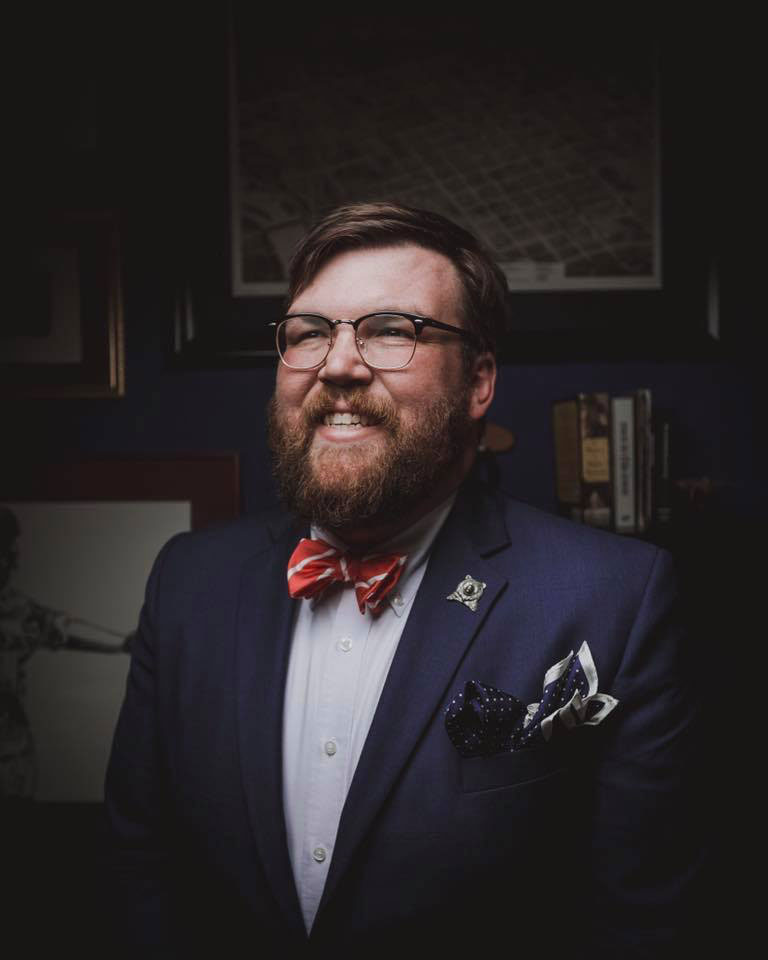Preventing Suicide in South Carolina
Sept. 10, 2021
“Are you thinking about harming yourself?” That’s a difficult question to ask and it could lead to a difficult conversation with a loved one, but it can also be lifesaving.
In South Carolina, suicide deaths have doubled since 1999 and are the 10th leading cause of death in the state, according to the South Carolina Department of Health and Environmental Control. The data for younger South Carolinians is even more alarming. Suicide is the second leading cause of death for teenagers and third leading cause for young adults.
There is hope. Suicide is preventable, and practically everyone can help prevent it. John Tjaarda, area director for South Carolina’s chapter of the American Foundation for Suicide Prevention (AFSP), says it is one of the few causes of death that can be positively affected by those outside the medical community.
“In 2019, the national suicide rate went down. It did go up in South Carolina, but the state is really poised to take that number down,” he says. “We have a lot of interventions and suicide prevention organizations dedicated to saving lives in South Carolina. I wouldn't be surprised if South Carolina becomes a leader in suicide prevention in the next five to 10 years.”
Here’s Tjaarda’s answers to some common questions about suicide prevention.
What does it mean to prevent suicide?
Suicide prevention is something everyone can be a part of. Suicide prevention is having a real conversation with someone who has expressed suicidal thoughts or ideations. It is calling the helpline (800-273-8255) alongside a person who might be having those suicidal thoughts so he or she can get connected to additional help. Suicide prevention is checking in with that person to make sure he or she is safe after the crisis.
During the pandemic, people made the effort to connect and make sure their family and friends weren’t isolated or lonely. Early indicators suggest the suicide rate went down during the pandemic because people were making those small connections and making sure everyone was OK. You could be preventing suicide just by reaching out to those you care about. You never know who might be struggling.
What is the first thing people should know about preventing suicide?
The first thing people need to know is it is possible for everyone to be a part of the fight against suicide. You don't have to be a medical professional to help save lives. If you encounter someone struggling with thoughts of suicide, we advise people to be empathetic, take the situation seriously and listen.
There is a stigma with suicide that it's just a cry for help. It’s absolutely a cry for help. People struggling with suicidal thoughts are really going through something. Counseling, therapy or some form of medical care will help because a lot of people who have suicidal ideation have some sort of underlying mental health condition that is usually not being treated. A lot of times when people are going through stuff, they've got problems. They've got issues that are weighing on their mind, but they're not looking to you to solve those problems. They just need someone to listen. They just need someone to tell them it's going to be OK, to give them a little hope.
John Tjaarda is the director for South Carolina's chapter of the American Foundation for Suicide Prevention.

What are some warning signs parents should be aware of?
Right now, our younger population is worrisome. Young people ages 10 to 24 seem to be suffering a lot more lately. Parents who are worried shouldn't be afraid to have conversations about suicide with their children. They need to start looking for treatment options, such as therapy and counseling. Many of our schools are equipped with counselors who, if not trained and able to handle issues themselves, are trained and able to guide parents to some sort of help for their child.
Warning signs include changes in a person’s talk, behavior or mood. Most people who take their life usually exhibit one or more of these signs, either through what they say or what they do. They might talk about feelings of hopelessness, feeling trapped or feeling like a burden to others. They might even talk directly about killing themselves. Sometimes people will say that in a joking manner, but sometimes that's a cry for help.
Look for changes in behavior, such as isolating from family and friends, having excessive aggression or exhaustion, or giving away prized possessions.
Finally, people might demonstrate a change in mood. They might show signs of depression, anxiety or irritability. They might lose interest in things they love doing. They might even experience a great relief or a sudden improvement after a prolonged period of sadness.
People who die by suicide rarely do it because of a single reason. Usually there are layers of stressors or depression that contribute to the decision. And again, they have that sense of hopelessness.
What should you do if you notice these changes in someone?
You should make those connections, have that talk, let them know you're there. Assume you're the only person who's noticed. We often hear someone noticed the signs but assumed the person was getting help somewhere. That’s not necessarily the case. Assume you’re the only person who is able and willing to help.
Asking about suicide won't put the idea of suicide in someone’s head. That is a common myth. A lot of people who have been thinking about taking their life will often be relieved when somebody mentions it because it's been a dark secret they've held on to. Being straightforward will help them start to air those feelings and let go of some of that stress.
You don't need to solve their problems. You just need to be a listener and an empathizer. Don’t minimize their problems. Take them seriously. If they are still struggling or are in a moment of crisis, call the National Suicide Prevention Lifeline at 800-273-8255. Call with that person. You can be there with him or her through the whole process. Parents who are concerned can call this number. Hotline operators can also answer questions about suicide prevention.
What would you say to someone struggling with mental health issues?
“You are not alone. Countless people are going through similar things right now. It’s so important that you find help and a treatment that’s right for you.”
Research shows 90 percent of people who die by suicide have an underlying and potentially treatable mental health issue. The Department of Mental Health in South Carolina has one of the most extensive mental health systems in the country. We have mental health centers that service every county in the state. The website can connect you to help.
You can also take an interactive screener program that is free to every South Carolinian over 18. We’re the only state that offers this to every resident. Your answers are completely anonymous. A professional will review your answers and contact you to help you find resources.
Anything else you think people should know about suicide prevention?
For anyone who is struggling, you are not alone. If you're having thoughts of suicide, please reach out to someone. Don't wait for someone to come to you. The National Suicide Prevention Lifeline is available at 800-273-8255. We can’t say that number enough. There is a text line for anyone who might be more comfortable with that. Text the words “Hope4SC” to 741741.
Related Reading:
 How to Get Started With Mental Health Care
How to Get Started With Mental Health Care
In the last year, mental health care has been top of mind as we collectively struggle with the pandemic, economic worries and stress. The number of Americans seeking help for mental health has skyrocketed. Here's some insight on how to get started with taking care of your mental health.
Read More How To Control Your Stress
How To Control Your Stress
The last year has been a stressful one whether due to the pandemic, economic worries or social unrest. For Stress Awareness Month, we asked a BlueCross case manager for some tips and insight into managing stress.
Read More Coping With COVID-19 and Seasonal Depression
Coping With COVID-19 and Seasonal Depression
The days are getting shorter and COVID-19 cases are spiking. Increased stress because of the pandemic and its companions — isolation, the challenges of navigating kids’ education schedules, potential economic hardship, a polarized political climate and the fear of, or reality of, losing loved ones — all add to the mental health burden people are feeling right now. Together, all this may make this winter more difficult.
Read More



















